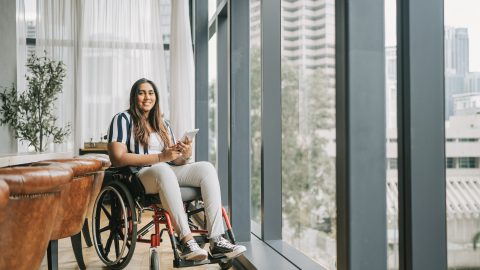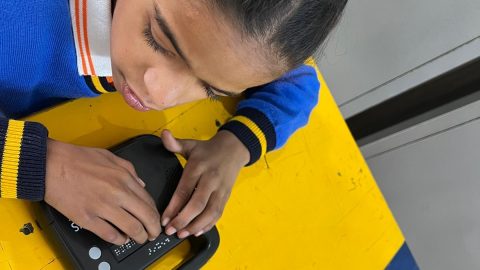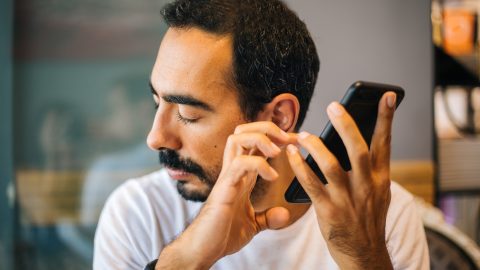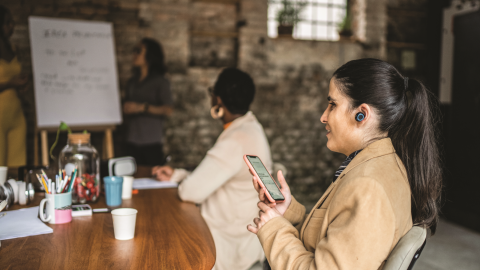ICYMI: Accessibility – in oneweek
The following is a post from Jenny Lay-Flurrie, Microsoft Chief Accessibility Officer
There has been so much fantasticness (if that’s a word) in the last couple of weeks on the accessibility front, I wanted to just take a moment to look back on some of the highlights. Between the availability of Windows 10 Anniversary Edition and Learning Tools for OneNote, the //oneweek hackathon, the Imagine Cup and the Gleason documentary release (which you really have *got* to see) – there’s just a lot to keep up on.
Last week was an exciting time at Microsoft as the company rallied around our third annual //oneweek event, which brought together employees from across the company to learn, share and create. It was an incredibly packed week, including a massive global hackathon, a product fair and university students showcasing technologies that will change the world during the Imagine Cup. Put simply, //oneweek is our opportunity to go beyond our daily jobs, to invest time in projects we are passionate about, to make new connections and really bring about innovation that can empower people with disabilities. Let’s have a look at some of exciting things that came out of //oneweek!
‘Gleason’ Premiere
One of the most successful projects to come out of a //oneweek Ability Hackathon has been our partnership with former NFL player Steve Gleason, who was diagnosed in 2011 with amyotrophic lateral sclerosis (ALS), or Lou Gehrig’s disease. At our very first //oneweek back in 2014, this hack ended up winning the whole hackathon that year and went onto become a full time project in Microsoft Research. The Microsoft Enable team continues to work on the technology that enables Steve to communicate and move his wheelchair independently with his eyes, with the goal of making it ready to share with others with ALS and other disabilities. Watch the video to learn more about the project, and go see the incredible new documentary on Steve’s life, ‘GLEASON’, that has opened in select theaters across the U.S.. It will make you laugh, cry, and remember what is most important in life – it’s a must see!
‘Ability’ Hacks at //oneweek
Our third annual //oneweek hackathon was bigger than ever and brought together over 14,000 employees from across Microsoft to use their talent and imaginations to build innovative technologies. What’s really exciting is the rapidly-growing momentum around projects focused on enabling people with disabilities. In 2014, we had 10 ‘Ability’ Hacks focused on people with disabilities. Last year, it was over 40. This year, we had over 100. Now that is progress!
Hackers bring a ton of energy and passion to the table during the hackathon and focus their skills on creating assistive technologies, adapting existing technologies or taking something as mind blowing as the HoloLens and seeing what applications it could have for disabilities from blindness to deafness to quadriplegia. With over 100 ‘Ability’ hacks, there were so many great examples of empowering people with disabilities – here are a couple of examples of what hack teams have developed:
A team hacking in Israel created the “LittleHero” shirt which is an E-Textile wearable for children with autism to enable them to be able to communicate effectively in a fun and engaging manner. The team designed and embroidered clear interactive communication symbols, which are made of touchable, special threads, and touching a certain symbol triggers a fun, visual and audible feedback. The shirt is also equipped with multiple sensors, such as an accelerometer and a GPS, and is connected to a cloud service that continuously analyzes the various signals and provides insights and alerts.
Another team out of Silicon Valley created a project called ‘Mind the Gap,’ which breaks down communication barriers for paralyzed and speech-impaired individuals by rapidly developing a more practical form of communication using a combination of facial muscle movements, minute head movements and even intentional states of mind.
Remember, these are ‘hack’ projects, not products. You won’t find them on the shelves anytime soon. But I (and many around the company) walked away motivated by the passion, technical depth and understanding of the customer experience and disability experience. Employees with disabilities were sought after all week to be part of the hack teams to help ensure that their project was based in reality. Some from the disability community were part of 3 or 4 or even 5 project teams. The results speak for themselves; high quality hacks and smart ideas that can really make a difference.
Microsoft Imagine Cup ‘Ability’ Award Winner
On our campus last week, we also hosted hundreds of the top tech students from around the world, competing in the annual Imagine Cup. The event is often viewed as the World Cup of student technology, where students work in teams to show off their ability to solve problems and empower people through technology. This year, a group of students from China ‘Team BoneyCare’ won the Ability Award for their project, an app they designed to help people with speech impairments such as stammering. The project is powered by Microsoft Azure and a cloud-based language recognition, wave analysis and emotion recognition technology. This team will be coming back to Redmond and spending a week with my team and teams across the business to help advance their project.
Wow! That’s a lot of awesome packed into a short amount of time! And in addition to all the advancements in research, we’ve had some big news on product accessibility from Microsoft recently as well:
Windows 10 Anniversary Update Adds New Features for Assistive Technologies
Starting on August 2, Microsoft’s Windows 10 Anniversary Update began rolling out for our customers around the world. You can learn more about the progress on accessibility we’ve made with the Windows 10 Anniversary Update, including an overview of new features, here. If you use assistive technologies and are still using Windows 7 or Windows 8.1 and want to upgrade to Windows 10, don’t forget that you will still have the opportunity to upgrade at no cost even though the Windows 10 free upgrade offer ended for the general public on July 29. As promised, we rolled out a new webpage to help customers who use assistive technologies to navigate the process and access the free upgrade offer extension for Windows 10 at: www.microsoft.com/accessibility/windows10upgrade. Feedback so far is good, but please keep it coming. If you have questions, give Disability Answer Desk a call, and any specific feedback please get it into UserVoice.
Learning Tools for OneNote Go Mainstream
Learning Tools for OneNote, the winning project from last year’s hackathon to help people with learning differences, is now out of preview and generally available. The Learning Tools feature has helped users dramatically increase reading speeds and inspired students with dyslexia to want to read. For more information about Learning Tools, including a link to download it and details on how students and teachers can get it for free, visit Office Blogs.
And that… was //oneweek. I am deeply inspired by the passion and progress taking hold on accessibility right now. We have a lot to do, and it’s not just efforts at Microsoft that are inspiring, but I do get excited at the possibilities. So please, check out Imagine Cup, //oneweek hackathon articles, Windows 10 and OneNote and let us know what you think! And, seriously, go see the GLEASON documentary – you will be very glad you did.
To stay up to speed on the latest on accessibility from Microsoft, visit https://www.microsoft.com/accessibility and follow us on Twitter at Microsoft Accessibility (@MSFTEnable).







